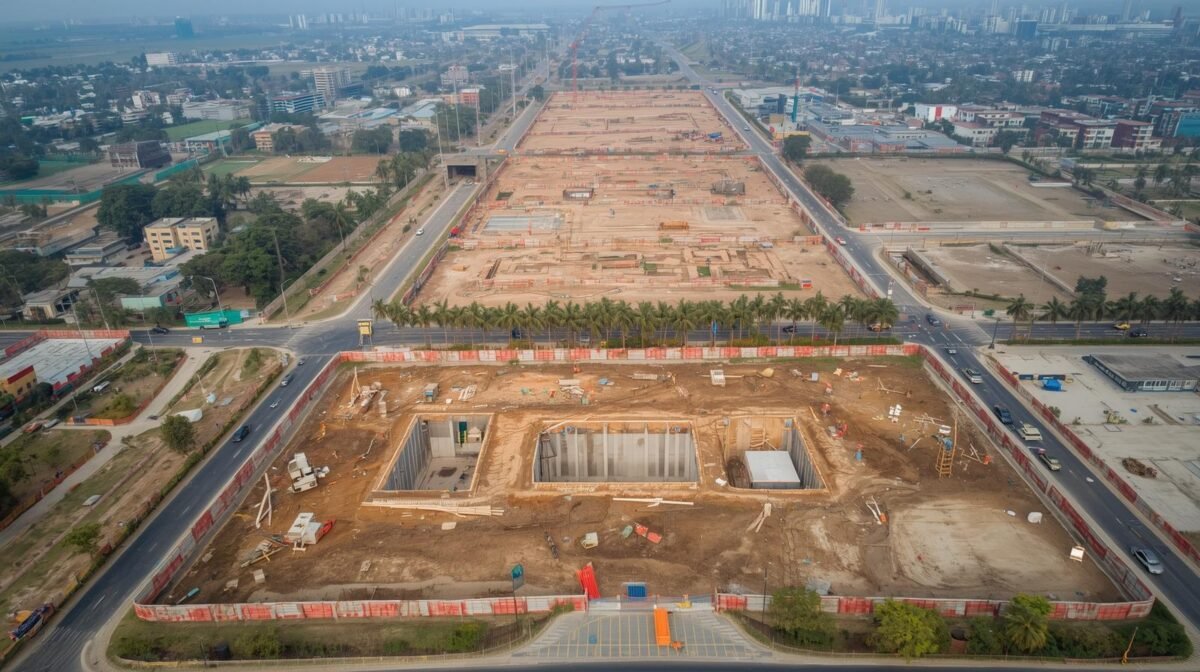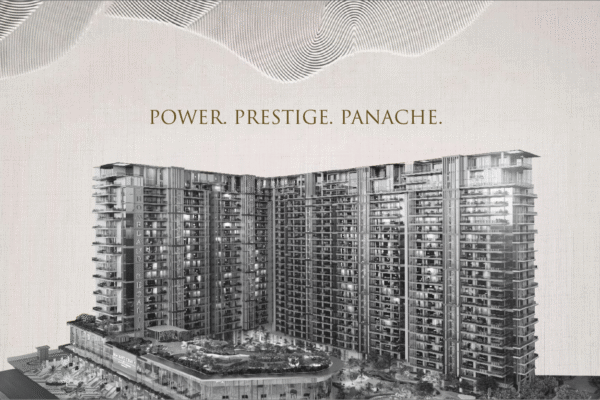Estimated reading time: 5 minutes
The Greater Mohali Area Development Authority has intensified its crackdown on unapproved construction, issuing 62 show-cause notices in multiple villages on the city’s periphery. The move underscores the rising tension between rapid property development and the regulatory framework that seeks to manage urban growth responsibly.
The notices, served in Mirjapur, Jyanti Majri, Bharonjian, Karoran and Seonk villages, come at a time when land values in and around Mohali have been climbing steadily. Analysts say the surge in demand for both residential and commercial plots has tempted many developers and individual landowners to bypass approval processes in order to capitalize on rising interest. That pressure has created visible strains across the Mohali real estate market.
Authorities argue that unchecked construction threatens long-term planning and infrastructure stability. In its affidavit before the National Green Tribunal, GMADA cited violations of the Punjab Regional and Town Planning and Development Act, the Punjab Apartment and Property Regulation Act and the Punjab New Capital Periphery Act. Officials emphasized that the notices were not merely symbolic but part of a broader enforcement effort designed to bring order to a sector that has at times grown faster than regulations can keep pace.
The issue has been simmering for years as new projects cropped up along Chandigarh’s edges, sometimes without proper land use change or environmental clearance. In past years, GMADA conducted demolition drives in Karoran, Perch, Soenk, Mullanopur, Garibadss, Padol and Nada villages. These operations drew attention for their scale, but enforcement has remained a recurring challenge as landowners often resume building once officials withdraw from the scene.
Local property dealers note that many buyers are unaware of the regulatory status of the plots they acquire. Sales agreements are often completed without sufficient legal checks, leading to disputes and financial losses when demolitions follow. That has added another dimension to Mohali real estate news in 2025: the risk perception among end-users and investors alike. Experienced brokers now stress the need for title verification and GMADA approvals before any purchase is finalized.
The city’s proximity to Chandigarh and its expanding IT corridor has fueled strong housing demand, particularly in peripheral villages where land was traditionally cheaper. Developers responded by offering new layouts, but not all projects followed the sanctioned path. Industry analysts say this mismatch between demand and regulation is one of the central reasons the enforcement gap has widened. The latest notices highlight that GMADA is determined to address the imbalance.
Buyers today find themselves navigating a complicated environment. On the one hand, Mohali’s reputation as an emerging residential and commercial hub is intact, supported by infrastructure projects, expanding connectivity and growth in services. On the other, the crackdown demonstrates that regulatory oversight is not optional, and properties lacking approval may expose owners to both financial and legal risks. For first-time buyers, this combination can be difficult to evaluate without expert guidance.
Lawyers specializing in real estate matters explain that the acts invoked by GMADA provide authorities with broad powers to halt unauthorized development. They also stress that the Periphery Act is particularly significant in areas bordering Chandigarh, where unplanned growth poses environmental risks. The National Green Tribunal has previously expressed concern over construction near eco-sensitive zones, including the Sukhna Lake catchment area, where land use has long been contested.
For Mohali real estate news in 2025, the case is emblematic of the challenges in balancing growth with regulation. Punjab’s urban planning agencies are under pressure to streamline approvals while also ensuring that expansion is sustainable. At the same time, investors are looking for faster clearances to keep up with market demand. That tension is unlikely to ease soon.
The notices are expected to trigger hearings where landowners will need to justify their construction or face demolition. GMADA officials have hinted that enforcement will be stricter than in earlier rounds, given the tribunal’s watchful stance. Yet past experience suggests the process may stretch, as property owners seek stays or attempt to regularize their holdings through lobbying.
Despite these uncertainties, Mohali continues to attract significant interest from NRIs and domestic investors. The appeal of being next to Chandigarh, combined with more affordable price points compared to Gurgaon or Delhi, ensures steady inflows. However, as recent developments underline, the regulatory landscape remains a key factor in evaluating the safety of such investments.
Market observers advise buyers to rely on projects that have clear RERA registration and GMADA approval. Those indicators, while not eliminating all risk, reduce exposure to sudden enforcement action. As more cases of unauthorized construction make headlines, transparency has become a selling point for legitimate developers.
For residents of the affected villages, the impact is immediate. Some households have invested life savings in partially completed homes now subject to scrutiny. Others face the prospect of losing rental income streams from unapproved units. In either case, the enforcement drive represents more than a policy decision; it alters the financial and social fabric of communities.
The broader takeaway is that Mohali’s growth trajectory, while promising, is bound tightly to compliance with state planning rules. As the city expands, stakeholders will need to strike a balance between ambition and regulation. For investors and end-users alike, the lesson is clear: due diligence is no longer optional. In the words of one broker, “If you are reading Mohali real estate news 2025, the first thing you should check is whether the property is legally clear. Otherwise, the dream of owning a home can quickly turn into a liability.”
GMADA issued 62 notices in villages including Mirjapur, Jyanti Majri, Bharonjian, Karoran and Seonk.
The crackdown addresses violations of state planning laws and unapproved developments that risk long-term infrastructure stability.
Buyers face higher risks if they purchase unapproved plots, as authorities may demolish or penalize illegal constructions.
Yes, previous demolition drives targeted areas such as Karoran, Perch, Soenk, Mullanopur, Garibadss, Padol and Nada villages.
They should verify GMADA approval, RERA registration, and ensure compliance with Punjab planning and periphery laws.















